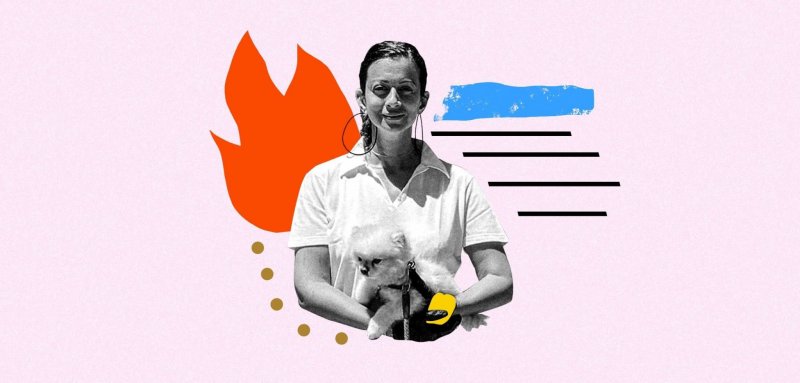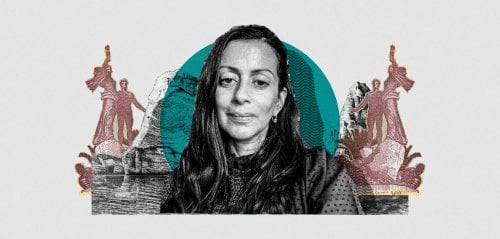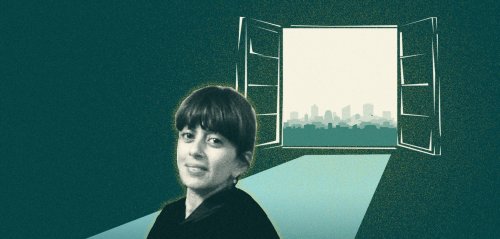My political education began in my early teens, quite by happenstance. I was doing my History of Art O level which required frequent visits on Saturdays to the National Gallery in Trafalgar Square in London. One afternoon as I exited the gallery, I heard chanting coming from in front of South Africa House – the then apartheid state’s embassy situated diagonally across the square – calling to “Free Nelson Mandela”. Having recently learnt of the jailed freedom fighter’s plight, I joined them in their protest and continued to proudly do so whenever I was able and did so with absolute conviction. I had researched apartheid and its murderous effect on South Africa’s black population and felt it my duty to protest peacefully for the release of somebody I considered a hero. A different view was held by then Prime Minister Margaret Thatcher and her bestie Ronald Reagan who had branded Mandela and his African National Congress a Communist and a terrorist organization in the 80s and even placed him on a terrorist watch list despite his incarceration.
I did the same for Aung San Suu Kyi the Burmese human rights activist and future Nobel Prize winner who was famously imprisoned and then brought democracy to her country by non-violent means. I stood vigil for her freedom on many a Saturday afternoon quite unbeknownst to my parents. Unfortunately, my support for her waned over the years when as Prime Minister, she traded the values that she had stood for in exchange for political expediency by defending the Myanmar military against allegations of genocide against the Rohingya Muslims which continues to this day. Sometimes victims become victimizers. When interviewed by BBC reporter Mishal Husain for The Today Programme in 2016 , she was heard saying angrily “No one told me I was going to be interviewed by a Muslim”. Heroes can easily become monsters in one’s eyes.
Nelson Mandela was a hero. He made those who protested for his release feel proud. When he was released, he remained true to his values and did not stray in order to be accepted by a particular group or to gain global popularity. For instance, he continued his resolute support for the PLO and in particular to Yasser Arafat to whom he considered a brother in the struggle for self-determination. He was the first to admit that as freedom fighters, like many others before them, fought viciously for their beliefs. As Mao once remarked, revolution is not a dinner party. He did however strive for national reconciliation and forgave and even worked closely with many who had fought against him to ensure South Africa’s political and social evolution. It could be argued that unfortunately his successors succumbed to the same temptation as The Lady, as Myanmar’s PM is called.
I have avoided direct political criticism of the Middle East but now I no longer feel that I should skirt around the subject of equality and injustice in the region. That’s why we must continue to march.
When support for the Iraq war was being drummed up by the Bush administration and his confederates in Britain, I joined hundreds of thousands of anti-war protestors on a frigidly cold day in February 2003. My health was fragile, and I was severely anemic, yet I marched for six hours. The March ended up in Hyde Park where I watched my beloved Harold Pinter, who was vocal in his opposition to the Iraq war, demand Tony Blair’s resignation. The Iraq war came and went, resulting in huge losses on every side. The removal of Saddam Hussein and his eventual execution left a power vacuum from which the country continues to reel. A group of neocons banded together and orchestrated a media campaign blasting out a unified message that if Saddam was removed all would be well in Iraq. They coopted the likes of Judith Miller, Bill Kristol and the wishy-washy Tom Friedman to be their proxies in the media and promote their either delusional or willfully ignorant vision of an instant Iraqi utopia .
Please forgive me if I don’t applaud their hypocritical stands. Iraq had undergone years of brutal sanctions and I knew the consequences personally as I was volunteering at the time for a charity providing medical aid to Iraqi children. I heard firsthand from our people on the ground in Baghdad and Basra of the suffering and unnecessary deaths caused by spiteful bureaucratic delays in the shipping of much-needed medications, including cancer drugs and antibiotics. The innocent were as usual caught in the middle as both sides leveraged the portrayal of their heartbreaking pain to prove their points.
Proponents of the war also raised the specter of weapons of mass destruction that Iraq was allegedly hiding. The absence of evidence was somehow deemed irrefutable proof of the danger of this invisible menace. The charade of course culminated in Colin Powell’s finest performance at the UN when he held up a vial of anthrax as a prop to drum in the imminent march to war. He would come to regret that speech. The Iraqi people bled in a war that was based on a lie. Victory was subliminally declared on May 1 2003 when George W. Bush stood on the flight deck of an aircraft carrier under a banner stating “Mission Accomplished” for his televised sound bite. Of course, there wasn’t even the illusion of victory as guerrilla warfare swelled and violence spilled over into neighboring Syria. The aftermath of that affair simply became the next chapter in a series of unending conflicts in the region.
I heard firsthand from our people on the ground in Baghdad and Basra of the suffering and unnecessary deaths caused by spiteful bureaucratic delays in the shipping of much-needed medications, including cancer drugs and antibiotics.
Coincidentally, I am reading William Dalrymple’s The Anarchy which my husband recommended. It is a gripping history of the British East India Company, a private corporation run by a small cabal of men in a London board room who in 1599 were given a monopoly by Queen Elizabeth I on all trade “east of the Cape of Good Hope and west of the Straits of Magellan”. India was of course the main prize, and it should not be forgotten that the Americas were discovered ‘accidentally’ a century earlier by Europeans trying to find a more expeditious route there. Within two decades the Company had dismantled the vestiges of the once great Mughal Empire and subjugated most of the local rulers, becoming de facto owners of the sub-continent. Trade was one-sided and confiscatory rather than reciprocal, and a series of harsh taxes on the locals often created local famines. Profits and taxes were used to perpetuate wars in the region against local resisters and European competitors, and all surpluses then sent to the shareholders back in England who unsurprisingly included a disproportionate number of the British governing elite who made the laws regulating the Company’s conduct. This state of affairs continued until their excesses led to the British state taking over the country as a colony. How India recovered from such looting – and incidentally the word derived from the Hindi word lūṭ meaning ‘spoils of war’ ) is astounding. It is now a country at the forefront of science and technology and a leader in the field of scientific research and space exploration.
Today, as I write this COVID diary from New York, Lebanese are protesting across the country after reports that the local currency has plunged from 4000 to 7000 to the dollar over the course of the last week. While the black-market rates quoted are often unreliable, what is clear is that for those seeking dollars, the Lebanese pound has lost about 70% of its value since October. Electricity is now viewed by some as a luxury and not a necessity. The people’s chants are less political nowadays and more primeval: “We are hungry.”
To call 2020 a year of upheaval would be an understatement. The pandemic was a catalyst in bringing long-festering social and economic divisions to the surface. Despite a global pandemic and lockdowns, across the world populations have taken to the streets. The risk to reward ratio is deemed negligible. Fear appears to have disappeared. As layers upon layers of subjugation are starkly revealed, the demands for justice and equality grow louder and increasingly impatient.
I leave you with a quote from “We March” by Shane W. Evans who captured a pivotal moment in American civil rights history: “We march... and we prepare... to march... we pray for strength… we lean on each other... as we march to justice, to freedom, to our dreams.”
Please march and do so peacefully. We owe it to our fellow men and women who came before us and paved the way for a woman like me to be able to express my views freely. I have avoided direct political criticism of the MIddle East but now I no longer feel that I should skirt around the subject of equality and injustice in the region. That’s why we must continue to march. Positive action for the betterment of society takes effort and willpower. March on, all the while remembering the brave men and women on whose shoulders we stand and to whom we owe so very much.
Raseef22 is a not for profit entity. Our focus is on quality journalism. Every contribution to the NasRaseef membership goes directly towards journalism production. We stand independent, not accepting corporate sponsorships, sponsored content or political funding.
Support our mission to keep Raseef22 available to all readers by clicking here!
Interested in writing with us? Check our pitch process here!








